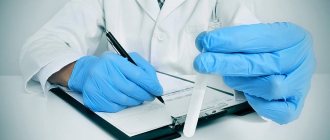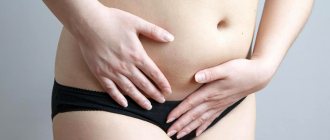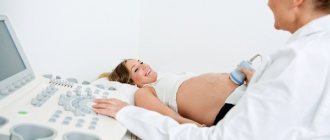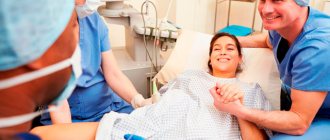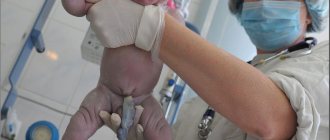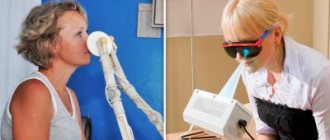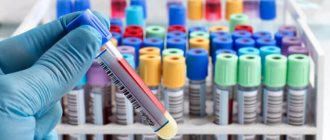How to prepare for a general blood test?
A complete blood count (CBC) is most often taken by expectant mothers. At the beginning of pregnancy and at the 30th week - mandatory. Additionally, OAC is given at intervals of 1-2 months, if the doctor needs to learn more about the health status of his patient. Blood is taken for a general analysis usually from a finger. Sometimes - from a vein.
Preparing for the procedure is simple. The day before the test, you need to exclude all fatty and fried foods from food. It is advisable to avoid protein foods. It is best to have vegetables for dinner. If you take the test not early in the morning, but closer to lunch (in some clinics tests are taken until 14:00), you can have breakfast. The main thing is that at least 4 hours pass after eating. 2 hours before the analysis, but no less, you are allowed to drink clean still water.
Benefits and harms
What is a glass of water or a spoon of honey on an empty stomach, is it beneficial or harmful?
Traditional and official medicine suggest starting your morning with a glass of clean cold water. This will allow the body to quickly wake up and start the work of all organs and systems. You need to drink water half an hour before meals. There is no harm or contraindications.
But other advice about taking anything on an empty stomach should be followed with caution. They are not suitable for everyone.
Honey on an empty stomach – benefits and harms?
A common tip is to take a spoonful of honey on an empty stomach. Honey is 80% fructose and glucose. In this way, it is similar to regular sugar, which is 100% sucrose, a compound of glucose and fructose. Not everyone can take pure carbohydrates on an empty stomach. Taking honey will lead to an increase in blood sugar levels, which, of course, will give a person strength, but will be dangerous for diabetics.
Honey diluted in water is often taken on an empty stomach. It is important to know here that honey, diluted in cold water and taken half an hour before meals, will increase acidity in the stomach. Diluted in hot (not higher than 60 °C) water and taken immediately before meals will not affect acidity.
That is why honey should be taken on an empty stomach with caution, taking into account your condition and the effects of honey itself on the body.
How to properly prepare for a biochemical blood test?
Using a biochemical blood test (it is taken from a vein), you can find out the blood levels of glucose, total protein, cholesterol, urea, creatinine, bilirubin and other components, including some hormones. Expectant mothers donate blood for biochemistry 2 times: upon registration and at the 30th week.
Here the requirements are stricter than when passing the UAC. You should not eat anything 12 hours before the test. That is, late dinner is cancelled. A night trip to the refrigerator too. Dinner should be light, without fried, spicy, or sweet foods. If, among other indicators, it is necessary to find out the level of cholesterol, then you need to exclude any fatty foods, even those containing so-called hidden fats: sour cream, butter, cheese, cottage cheese, sausage. You can drink water before the test, but as little as possible, only if you really want to. Drinking may affect the concentration of components in the blood, which will distort the test results.
If the test components contain hormones, you should not enter the laboratory assistant’s office in an agitated state. It’s better to sit in the hallway for half an hour to calm down and get your hormonal levels in order.
Why is blood donated on an empty stomach?
Taking blood on an empty stomach is one of the basic rules when undergoing such diagnostics. However, when setting such a restriction. So, when collecting blood for diagnosing HIV, the fullness of the stomach does not play any role.
But food intake affects the following standard blood parameters:
- Increased concentration of fats and proteins;
- Activation of the enzymatic system;
- Increasing the level of hormonal saturation;
- Changes in blood viscosity.
Therefore, it is better not to neglect the recommendation on stomach fullness before diagnostic blood sampling. This can cause false positive results during diagnosis, and as a result, an incorrect diagnosis.
After taking blood, it is better to adhere to several rules so that the body quickly replenishes the reserves of missing substances in the bloodstream:
- After taking blood, it is better not to get up for a while.
- If you feel dizzy or feel weak, seek medical help.
- Do not remove the bandage for 4 hours.
- Try not to get the puncture site wet for a while. It is better to take a shower or bath the next day.
- Eat plenty and regularly.
- Drink increased amounts of water.
- You can only get vaccinated after 10 days.
2. Drink coffee.
3. Drink alcohol.
5. Go to bed.
General rules for taking a blood test
And a few more things that are not obvious at first glance that may affect the result of the analysis.
- It is not recommended to chew chewing gum before the test.
- If you are taking any medications, such as diuretics, you should talk to your doctor about whether you should skip a pill the night before your test.
- It is not recommended to take tests after physical activity. For example, if you do pregnancy exercises in the morning, it is better to donate blood before training.
- After other physical activity - for example, if you ran after a minibus or climbed the stairs - you need to sit for 15-20 minutes, and only then go into the laboratory office.
- You should not smoke less than 1 hour before donating blood.
- It is not advisable to take a blood test immediately after physiotherapy, x-rays, ultrasound, or a massage session.
When does the condition occur?
What is fasting? This is the state of the body achieved after abstaining from eating for at least 8 hours, and preferably 12. Usually they talk about the state on an empty stomach in the morning after a night's sleep in the interval before 10 am. It is at this time that all procedures that require the patient to be on an empty stomach are prescribed. Dinner then should be no later than seven or eight o'clock in the evening.
If you don’t eat for longer - up to 12-13 hours, then they talk about a different state - “on an empty stomach”.
You need to avoid eating for 8, or better yet, 12 hours, but no more.
Coffee and tea (even without sugar), juice, milk, carbonated drinks, compote, jelly, mineral water are also food! Milk, juice, compotes and jelly contain nutrients, coffee and tea - substances that affect different systems of our body, mineral water - micro- and macroelements. Anything that is not clean water at room temperature is perceived by the body as food and affects the absorption of other substances, as well as blood counts.
You should not abuse water either. If you drink a lot of water in the morning, your blood volume will increase, which will affect your test results. At home, you can drink a glass of water and take a bottle with you. Doctors even recommend drinking water in small quantities before donating blood, especially for pregnant women, since due to the peculiarities of their hormonal status, their blood thickens, which complicates the process of taking it.
How are antibodies tested?
The material is taken from a vein. Is it possible to eat before such an analysis, you ask? After all, it is much more difficult for a pregnant woman to fast than outside of gestation, and you can even lose consciousness. You cannot eat; blood must be donated on an empty stomach.
In answer to your question about how to take such tests, it should be noted that you should not do:
- They do not take tests for immunoglobulins at high temperatures or in case of any illness of the mother (infection with respiratory infections or exacerbation of chronic diseases).
- You should not donate blood after physiotherapeutic procedures.
- It is advisable to refrain from taking any medications at the time of blood collection. If medication cannot be stopped, the doctor should know what medications the woman is taking.
What to do before donating blood for biochemistry?
Biochemical analysis of blood components allows you to assess the functionality of the whole organism.
This diagnostic procedure is used:
- Definitions of micronutrient deficiencies.
- Detection of various diseases.
- Characteristics of violations in the functionality of internal systems.
The biochemical composition of blood is influenced by external factors, so you must adhere to the following rules:
- 3 days before the collection of biological material, avoid drinking alcohol.
- Avoid physical activity.
- Blood is collected only on an empty stomach.
- Stop taking medications before the test.
- You are allowed to quench your thirst with clean water.
Drinking water before taking blood for diagnostics is allowed, the main thing is that it complies with the recommendations:
- It was clean.
- Not carbonated.
- No added preservatives.
- Even minimal glucose levels are unacceptable.
It is better to stop drinking water an hour before the procedure.
Scientists have proven the effect of alcohol on the performance of blood cell tests. Therefore, you should try to refrain from taking this product before taking the test.
In biochemical blood diagnostics, alcohol can:
- Cause an increase in some substances and a decrease in others;
- Alcohol can increase the concentration of glucose in the general composition of the blood;
- Oxygen begins to be poorly absorbed;
- General health worsens.
When taking a general blood test, drinking alcohol can also distort the results:
- Negatively affects the level of red blood cells.
- Increases cholesterol.
- Reduces the concentration of hemoglobin in the blood.
- Affects lipid content.
In 3 days, the body is able to cleanse itself of the influence of this substance and normalize all systems. However, if you drank alcohol, the best option would be to reschedule your visit to a medical facility in order to obtain reliable test results.
It should be remembered that different laboratories may use different methods for collecting blood from a patient. However, such a diagnostic manipulation always requires some preparation in order to obtain reliable indicators.
To make a correct diagnosis, follow several rules:
- Blood tests should always be taken in the same laboratory. Only in this case the results obtained will be correct.
- The time of delivery also matters. The best option would be to draw blood in the morning and on an empty stomach.
- An accurate picture of the ongoing disease can only be established through systematic diagnostic manipulations.
It should be remembered that up to 30 years of age, examinations must be carried out annually, at 40 years of age – once every six months. And if there are medical indications, you need to undergo testing more frequently.
Blood test for infections
Blood is donated in the morning on an empty stomach (or in the afternoon and evening, 4-5 hours after the last meal). 1-2 days before the test, exclude high-fat foods from your diet. Before donating blood for viral hepatitis, 2 days before the test, it is advisable to exclude citrus fruits, orange fruits and vegetables from the diet.
The results of tests for the presence of infections depend on the period of infection and the state of the immune system, so a negative result does not completely rule out infection. At an early stage of the disease, seroconversion occurs (absence of antibodies during the acute period of the disease). In doubtful cases, it is advisable to re-test after 3-5 days. A blood test for the presence of IgM class antibodies to infectious agents should be carried out no earlier than 5-7 days from the moment of illness, and IgG and IgA class antibodies no earlier than 10-14 days. This is due to the timing of the production of antibodies by the immune system and their appearance in the blood in the diagnostic titer.
Seal
Preparing for donation
In order for blood to be as useful as possible, certain conditions must be met:
- If you had a sleepless night, you cannot undergo the donation procedure.
- If you feel unwell, it is better to postpone donation.
- 2 days before donation, you must stop drinking alcoholic beverages.
- For 3, you should not take aspirin and anti-inflammatory drugs (they thin the blood).
- You should stop smoking an hour before the procedure.
Scientists have noticed that blood loss is best tolerated in the morning. Therefore, you need to go to the procedure before noon. After twelve o'clock in the afternoon you can donate only to experienced donors.
And, of course, you need to stick to a diet before donating blood. You should get enough sleep the night before; sleep should last at least eight hours. In the morning you need to eat a hearty meal. Donation on an empty stomach is prohibited.
The donor's diet is of great importance because the composition of the blood depends on proper nutrition. If you take fatty foods, the blood will be poorly separated into components. In addition, it will have a cloudy tint. Doctors will not approve such blood for donation.
Therefore, before donating blood, you must follow a special diet so that it is most useful for transfusion.
In the morning before delivery, food is prohibited:
- acute;
- fat;
- fried;
- smoked;
- milk;
- chicken eggs;
- oil;
- bananas;
- chocolate;
- dates;
- nuts.
Breakfast before going to the procedure should look like this:
- porridge without milk;
- dry cookies, bagels;
- sweet tea;
- jam;
- fruits;
- vegetables.
You should drink more water in the morning before the procedure, at least two glasses. You can drink juices, fruit drinks, mineral water, compotes.
Nutrition after the donation procedure
After collecting 1 standard dose of whole blood in the amount of 450 milligrams, the process of its complete recovery takes about 4 weeks. That is why a person involved in donation needs good nutrition.
Main nutritional features:
- Increased calorie content compared to usual, realized through the consumption of healthy foods;
- Fractional meals in relatively small portions , but up to 7 times a day. In this case, the last meal should be taken later than 21 pm, at least 120 minutes before going to bed;
- Saturated trans fats and simple carbohydrates are excluded from the diet ; instead, the consumption of protein foods, complex carbohydrate compounds and polyunsaturated fats is increased;
- In addition to boiling and steaming, dishes can be baked, trying to refrain from classic harmful frying;
- Over the course of several weeks, it is advisable to drink more liquid in the form of plain water, juices, fruit drinks, compotes, rosehip infusions and tea. Dosage – 30 ml per 1 kilogram of weight;
- As a supplement, doctors allow drinking a small portion of red wine in the amount of 100 ml daily.
During this period, nutritionists recommend limiting the consumption of fast food, offal, sausage, marinades, pickles, sauces and dressings as much as possible. At the same time, the diet must include both red and white meat - beef, lean pork, chicken, turkey and, of course, fish and other healthy seafood.
It is also worth adding to your diet dairy and fermented milk products (all types, including medium fat content), vegetables, fruits, herbs - potatoes, beets, pumpkin, spinach, peaches, broccoli, artichoke, apples, kiwi, ripe fresh tomatoes, citruses.
In addition, it is advisable to consume nuts, dried fruits, pumpkin seeds and other products recommended by a nutritionist, endocrinologist, hematologist or therapist.
Preparation rules for certain indicators
Some indicators determined within the framework of biochemistry require specific preparation. The general recommendations are not canceled and must be followed, but additional rules will be added. How to properly prepare for the study, based on what indicator is being studied, we will consider below:
- Urea. Blood must be donated on an empty stomach, and you can drink water. Even minor physical exertion is prohibited. For several days it is necessary to follow a diet excluding meat and fish dishes, tea and drinks containing coffee.
- Cholesterol, lipoproteins. The preparation algorithm is similar to other indicators, that is, blood is donated on an empty stomach in the morning. It is recommended to avoid taking medications that lower lipid concentrations 14 days before the test.
- Glucose. To prepare for the study, it is not enough to simply donate blood on an empty stomach. Do not brush your teeth or chew gum. Diuretics and some other medications can also distort the results, so you should notify your doctor about therapy.
- GTG (glucose tolerance test). The preparation algorithm is that the patient does not need to follow a diet. You need to eat as usual. Blood is taken in the morning on an empty stomach, after fasting for 10-12 hours. Before taking the test, you should avoid taking medications. The analysis technique involves intravenous or oral administration of glucose. During the procedure, the patient should not walk, smoke, or be nervous.
- Haptoglobin. Before the analysis, it is mandatory to consult a doctor about discontinuing medications. Blood is also donated on an empty stomach, and you can drink water.
- Fibrotest. The preparation algorithm consists of discontinuing medications and foods that color the blood serum (carrots, tangerines). You can drink clean water without dyes. Blood is donated on an empty stomach.
The study of some indicators of biochemical analysis requires compliance with additional rules. The preparation is simple and can be done at any age. The technique for collecting blood is the same in all laboratories, regardless of the indicator being studied. The test can be done either in a paid clinic or in a clinic at the place of attachment, having first taken a referral from a doctor.
Blood biochemistry allows you to assess the correct functioning of all organs and systems of the body.
In order to prevent diseases, it is recommended to undergo a test once a year, even if there are no symptoms of pathology. Preparation for a biochemical blood test is mandatory, since its absence can seriously distort the results of the study and mislead the doctor. In this case, the treatment technique and further examination may be chosen incorrectly. Proper preparation for the analysis will significantly save time spent on making the correct diagnosis.
Biochemical blood testing (blood biochemistry) is used in laboratory diagnosis of diseases of human organs and systems. Unlike the general one, a biochemical blood test allows the doctor to assess the condition of a specific organ. In addition, with the help of this study it is possible to determine the deficiency or excess of many microelements and metabolic disorders in the human body.
In some cases, the doctor prescribes the study of only a few blood parameters necessary to diagnose pathologies. But more often a general biochemical blood test is performed to determine the values of many blood characteristics.
What foods are allowed and not allowed?
There are products that are undesirable to consume shortly before submitting biomaterial for analysis, since they can artificially increase or decrease blood counts and change its density.
1-2 days before donating blood, it is prohibited to consume:
- eggs;
- sausages;
- fast food;
- canned food;
- smoked meats;
- dried fruits;
- seafood;
- nuts, seeds;
- fatty dairy products;
- fatty meat: duck, pork, goose;
- vegetable and butter;
- mayonnaise, ketchup, salad sauces;
- marinades and pickled products;
- sweet fruits and berries: banana, grapes;
- fatty fish: mackerel, trout, sardine, herring;
- products containing chemicals: snacks, fast food, artificial seasonings, semi-finished products.
Advice! The day before the expected test, it is recommended to stop using chewing gum.
The drinking regime will also have to be reviewed: alcohol, coffee, kvass, strong tea, energy drinks, fruit juices, mineral water and sweet soda are prohibited.
Products allowed for consumption:
- vegetables;
- fresh vegetables;
- dried bread, drying;
- lean fish: hake, halibut, cod;
- day-old white bread, unsweetened pastries;
- porridge without oil and salt, cooked in water;
- lean meat: chicken or turkey fillet, rabbit;
- fermented milk products with a fat content of no more than 2.5%;
- unsweetened fruits and berries: apples, apricots, strawberries, blueberries, currants.
During the day, you can drink water without gas and additives, weak tea and fruit compote without sugar.
: prolonged refusal of food, as well as consumption of prohibited foods, will negatively affect the results of the study.
HOW TO GET TESTED CORRECTLY FOR PREGNANT WOMEN:
It must be done in the morning, without eating anything.
In order to determine the daily rhythms of changes in readings, for repeated examination it is necessary to take tests at the same time. Blood chemistry.
Here it is necessary to take into account the fact that in the morning on the day of the test you should completely give up food, and before the day of the test, dinner should not be high in calories, it is better to just have a snack. Strong physical activity and stress are also not permissible. It is also worth knowing that the test results can also be affected by medications, so it is advisable to stop taking medications before the test. When it is impossible to cancel medications, the attending physician should know about the medications that were taken. Then this will serve as an amendment to the results of the biochemical blood test. This analysis determines many things, for example, the level of uric acid, the exchange of bile pigments, the level of creatinine, the Rehberg test, etc.
Uric acid level.
For the last 3 days before the test, it is necessary to exclude from the diet foods that are high in purines. This includes liver, kidneys, meat, fish, tea and coffee. In addition, do not forget that physical activity is also impossible.
Exchange of bile pigments.
This test can detect the amount of bilirubin contained in the blood. Blood serum will be required for results. Before taking the test, you must take ascorbic acid, and also avoid eating foods that can cause coloration in the serum (citrus fruits, carrots) and medications that also affect artificial coloration.
As for determining the level of creatinine, as well as the Rehberg test, they must be carried out at the same time in urine and blood.
To determine the level of creatinine, it is necessary to collect urine for 24 hours. When the Rehberg test is performed, the pregnant woman should be in the hospital, lying in bed and not eating anything. In the morning, the woman is asked to drink 400-600 ml of water on an empty stomach, and after emptying her bladder, the time of the test is recorded. Half an hour after this, a blood test (5-6 ml) is taken from a vein; it will also determine the level of creatinine. Another hour after the urine test, urine is collected again and its volume is determined. If the amount of urine is too small, then it must be collected within two hours, and blood is donated an hour after the urine is given.
Glucose tolerance test (“sugar load”).
It can be carried out when tests that determine glucose levels are ready, and there should be no burden on the body. The gestational age when the 1-hour glucose tolerance test is performed must be at least 24 weeks. Previously, at a period of 16-20 weeks, those pregnant women who had someone in their family suffering from diabetes, as well as those women who have persistent glucosuria, that is, the presence of sugar in the urine, can be tested. Women who are obese can also get tested earlier, and if earlier, during their first pregnancy, they had gestational diabetes mellitus, a large fetus, or intrauterine fetal death. When this test is performed, there is no need to refrain from food, but after taking 50 g of glucose orally, the woman is not allowed to eat for an hour until venous blood is taken from her. The test will be positive if the glucose concentration is 7.7 mmol or more. A stationary oral glucose tolerance test will then follow, lasting 3 hours. This method is effective in detecting diabetes in pregnant women. For 3 days, a pregnant woman adheres to a diet that contains the required amount of carbohydrates; in the evening before the examination day, she should not eat food; in the morning, the woman drinks 100 g of glucose. It is necessary to determine the glucose level one, two and three hours after its consumption.
Blood hormone levels.
It is forbidden to eat for 5 hours before donating blood from a vein to measure the level of thyroid hormones, prolactin, cortisol, C-peptide and insulin. Typically, samples are taken in the morning. To identify other hormonal levels of the analysis, it is not necessary to adhere to fasting and the time of delivery.
Such an analysis during pregnancy can detect blood clotting, it helps to avoid bleeding during childbirth. It is taken in the morning and you should not eat before the test. Before the day of blood sampling, you are not allowed to eat sweets or fatty foods.
Urine tests in laboratory conditions
General urine analysis.
In order to take a general urine test, you need to take morning urine that has accumulated in the bladder overnight. In this way, daily fluctuations in indicators can be reduced and the correct study indicators can be determined. To carry out the analysis you will need about 70 ml of urine. In the morning, a thorough toilet of the genital organs is necessary, after which you can only take the test. If you do not follow this rule, this may lead to the appearance of a high content of leukocytes and red blood cells in the urine, which in turn will lead to an incorrect diagnosis. For the morning toilet, a 0.02-0.1% solution of potassium permanganate or a soap solution, which should be washed off with boiled water, may be suitable. All urine is suitable for analysis, but it may contain elements that lead to inflammation of the urinary system, external genitalia, etc., so it is better not to use the first portion. The average portion of urine should be collected in a clean container, without needing to touch the bottle to the body. Then the container with the analysis must be carefully closed with a lid. When the material is received, it must be submitted for analysis no later than 2 hours after collection. If urine is stored for a longer period of time, then there is a risk of foreign flora carrying bacteria appearing in it. The acidity of urine (pH) will also be shifted to high levels, because ammonia released by bacteria will be present. There is also a possibility of obtaining negative or low results regarding glucosuria, since glucose is consumed by microorganisms. In addition, in daylight, bile pigments are destroyed. If you store urine, be aware that it will contain red blood cells and cellular elements.
